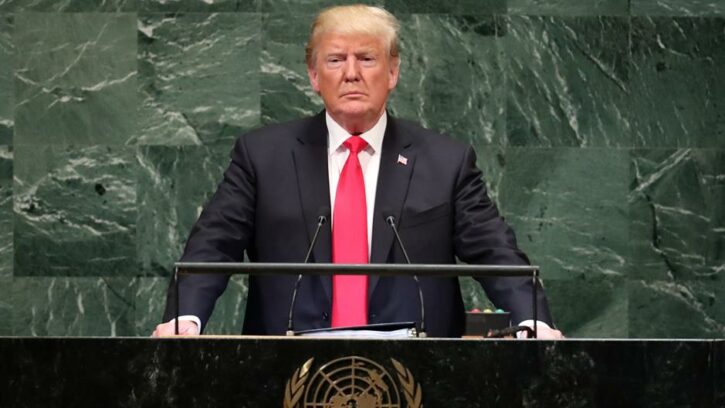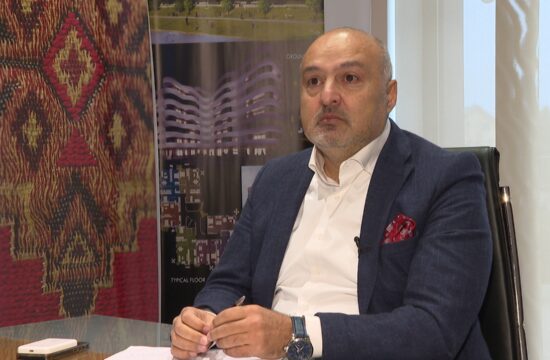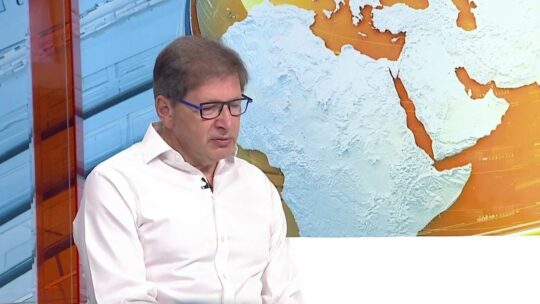
President Donald Trump stepped up to the iconic dais at the United Nations General Assembly on Tuesday and began his speech much as he would a campaign rally: by boasting that his administration "has accomplished more than almost any administration in the history of our country."
Trump's second-ever address to the international body served to reaffirm to a domestic political audience, just as much as to the world, Trump's continued commitment to the policies and convictions that he has unleashed on the world in the year since he last addressed the UN.
The President defended his hardline position on Iran and his trade war with China, touted his diplomatic engagement with North Korea and reaffirmed his rejection of globalism and the prominence of international institutions.
The speech showed that while Trump has accelerated the execution of world-rattling policies, his worldview remains consistent with the “America First” doctrine he first took to the world stage last year: proclaiming the world is best served if countries focus on their own self-interests and reject global governance mechanisms.
“We are standing up for America and for the American people and we are also standing up for the world. This is great news for our citizens and for peace-loving people everywhere,” Trump said. “We will never surrender America's sovereignty to an unelected, unaccountable, global bureaucracy. America is governed by Americans. We reject the ideology of globalism and we embrace the doctrine of patriotism.”
It remained equally clear that Trump's message is still not widely embraced by other countries; in contrast to past US presidents, his speech was not once interrupted by applause.
Beyond the international framework, Trump trained his fire on Tuesday on a handful of countries, most prominently China and Iran.
He touted his decision to withdraw from the “horrible” Iranian nuclear deal and urged other countries to join the US in ratcheting up economic pressure on Iran.
And even as he proclaimed his “great respect and affection” for Chinese President Xi Jinping, he singled out China as he leveled a broadside against “broken and bad trade deals” and a world trading system he called “in dire need of change.”
Conspicuously absent from Trump's criticisms: Russia, whose hostile actions have been a focus of criticism from Western countries for years but with whom Trump has tried to foster better relations.
Trump's speech also came a year after he threatened to “totally destroy North Korea” if it endangered the US or its allies and dubbed the country's leader Kim Jong Un “Rocket Man.”
“We have engaged with North Korea to replace the specter of conflict with a bold and new push for peace,” Trump said on Tuesday. “The missiles and rockets are no longer flying in every direction. Nuclear testing has stopped. Some military facilities are already being dismantled. Our hostages have been released. And, as promised, the remains of our fallen heroes are being returned home to lay at rest in American soil.”
Trump's comments were a welcome change for many of the international diplomats in the room, who last year were shaken by Trump's menacing comments about Pyongyang. But Trump's assessment of the diplomatic détente with North Korea omitted the challenges that remain and the reality that North Korea continues to quietly develop nuclear weapons and has yet to take any concrete, verifiable steps toward denuclearisation.
Follow N1 via mobile apps for Android | iPhone/iPad | Windows| and social media on Twitter | Facebook.




